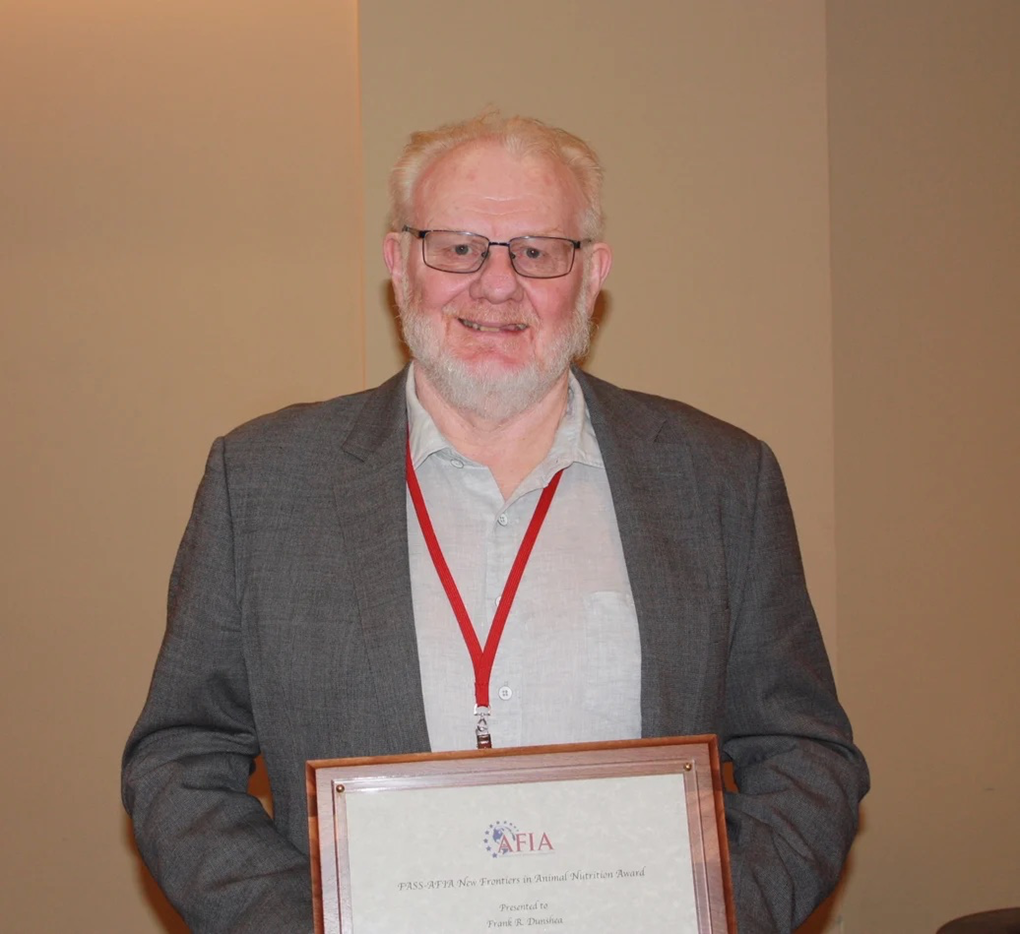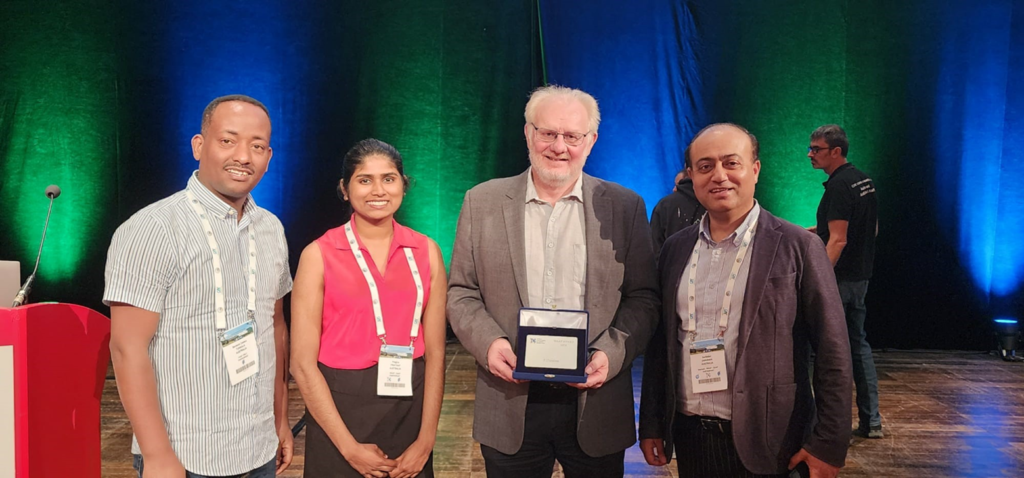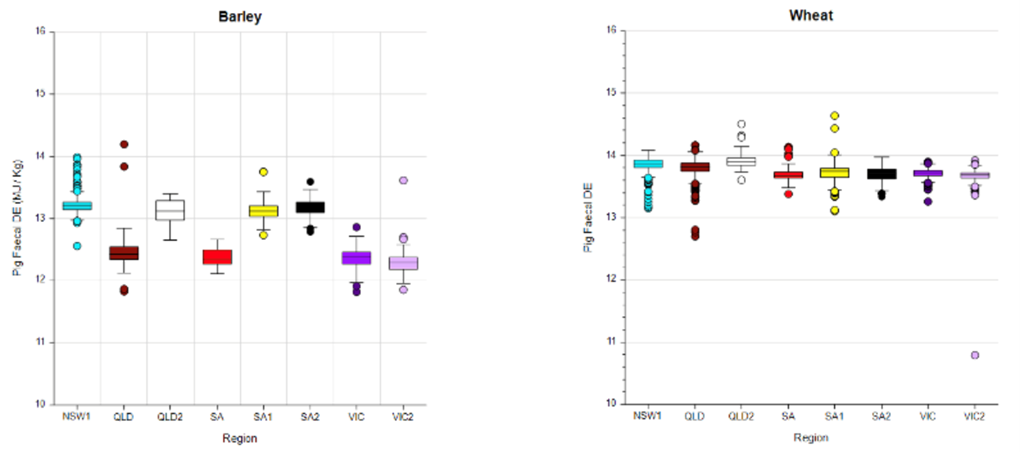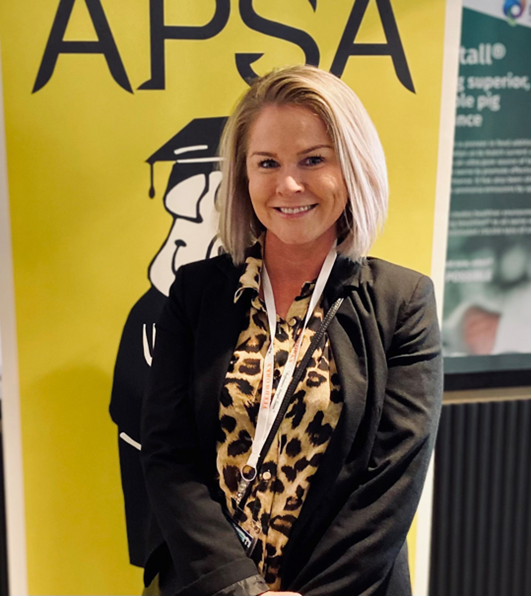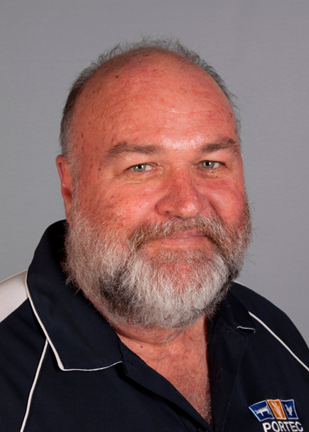Welcome to this edition of APRIL NEWS.
In January, applications for APRIL’s education and training awards were collated and a meeting of the Education Advisory Committee was held in early February. Successful awardees are mentioned further in APRIL NEWS, but of note, it was pleasing to see several applications related to the collaborative CRC-Project related to tail biting. This is an important project for the industry, and encouraging students to contribute to its outcomes is an integral part.
In late February, I attended the APL Industry Benchmark meeting in Melbourne and provided an APRIL update on several of our activities. Having last attended this meeting in October 2022, it was good to see the continual improvements producers are making in their production, some of which is at world standard, and listen to the honest and open accounts from producers of what works, or doesn’t work, in their respective businesses.
In this edition of APRIL NEWS, the APRIL Chair, Dr Tony Peacock, provides some comments on various matters that have occurred since the start of the new year, including APRIL’s representation at the Inquiry into Pig Welfare in Victoria.
Research and Innovation discusses Transformation Projects and Innovation Projects.
Education and Training lists the successful recipients from the 2023/24 call for education and Industry Placement Program awards.
Commercialisation and Innovation in this edition features the results of a study done assessing the AusScan Online in vivo energy predictions between samples of whole grain and ground grain.
This edition’s Research Snapshot focuses on a recently completed APRIL-supported project exploring the use of calcium nitrate in diets for gestating sows, to reduce piglet birthweight variation and improve their lifetime performance.
Our Member Focus this edition is on Rutu Galea, Animal Science Welfare Centre, The University of Melbourne.
Recent Publications provides an update on publications arising from APRIL/Pork CRC-supported studies. Please let me know (j.pluske@april.org.au) if you have other publications that can be mentioned in future newsletters.
As always, we would welcome receiving APRIL-related information and upcoming events from our stakeholders for possible inclusion in the Newsletter [subject to space (preferred length is 100-150 words) and content]. Sincerely,
Dr John Pluske
CEO and Chief Scientist
j.pluske@april.org.au
Message from the CEO
The APRIL Board will meet later this month to discuss and decide whether to adopt and implement a participants’ model for APRIL. As I have written previously, the APRIL Board thinks it can improve effectiveness and continue to build APRIL by moving to a more collaborative “Participant” Model that will have greater scope to tailor participation levels to suit the needs of organisations that want to work with us. Having greater capacity to cater to these needs will increase APRIL’s value to those organisations and attract greater participation. Organisations that are not a participant of APRIL could still be involved in projects, but they would need to pay more to do so.
Letters of invitation to join APRIL as a participant were sent out before and after Christmas to current APRIL Members and other organisations we have been associated with. I would like to thank the organisations that have already shown their desire to join APRIL under this new model, and welcome inquiries from other organisations that might be interested in being part of APRIL’s future and contributing positively to the sustainability of the pork industry.
In February 2024, the Boards of both APRIL and Australian Pork Limited (APL) came together again in Canberra. The Boards’ heard updates from both APRIL and APL as well as the major findings and outcomes of the ‘Green Paper’, aimed at identifying major issues confronting the industry that can be addressed through investments in research and development. Both Boards are looking forward to this being finalised and enacted upon.
In late March, APRIL CEO and Chief Scientist Dr John Pluske and I appeared at the Legislative Council Economy and Infrastructure Committee’s Inquiry into Pig Welfare in Victoria. This Committee has been asked to consider: (1) the scope, application, compliance with and enforcement of relevant existing regulatory frameworks and their ability to promote pig welfare outcomes; (2) the ability of the most common methods used to stun pigs before slaughter (including electrical stunning and exposure to high concentrations of carbon dioxide gas) in Victorian slaughterhouses to minimise pain, suffering and distress and prevent injury, and available alternatives; (3) the outcomes of the 2017 industry-led phase out on the use of sow stalls; (4) current industry breeding and housing practices particularly the use of different forms of confinement; (5) international comparisons to determine industry adherence to best practice standards; and (6) any other relevant matter.
Submissions and public representations were made by a cross-section of the pork industry including APL, Rivalea (Australia) Pty Ltd.-JBS, the SunPork Group, Apiam Animal Health, individuals, producers, and the National and Victorian Farmers Federation. Our hearing with the Committee, done in conjunction with Dr Chris Richards and Dr Kate Savage from Apiam Animal Health, was a useful chance to highlight the impact R&D and science has had on the Australian pork industry over the decades that both John and I have been involved.
Having worked with so many other industries during my time with CRCs, I know first-hand how this is a science-hungry industry, willing to invest in and apply research. Earlier witnesses showed that there is a concerted effort to attack all animal agriculture, including by illegal and unethical means. We must continue to do top-class science and work for its implementation into farming systems without the intimidation of a small number of anti-agriculture extremists.
Finally, I would like to welcome Dr Rebecca Morrison from Rivalea (Australia) Pty Ltd., as one of the member-nominated Directors on the APRIL Board. Dr Morrison was elected at the Annual General Meeting in November 2023. I would also like to thank Professor Bronwyn Harch for her services and contributions on the APRIL Board over the last 18 months. Professor Harch was one of two APL-nominated Directors on the APRIL Board, and we now welcome back Margo Andrae, CEO of APL.
Dr Tony Peacock
Research and Innovation
A key pillar in APRIL’s Strategic Plan 2022-2025 is the allocation of funds for key Transformation Projects for the industry. Several significant Transformation Projects are already underway, such as the CRC-Project Eliminating pig tail removal to improve welfare and industry sustainability, an Australian Research Council-Linkage project How to make antimicrobials in pig feed redundant, naturally, and a project exploring naturally derived feed additives and natural bacterial flora to combat antimicrobial resistant bacteria.
Subject to Board approval, it is envisaged that funds will be available in 2024-25 for key Transformation Projects in a number of significant areas. There is also planned to be a tranche of funding available for Innovation Projects (also subject to Board approval).
Further details on these initiatives are planned to be released following the APRIL Board meeting on 22 April.
A reminder please that Project Leaders for current projects provide a Project Quarterly Report and Project Cash Expenditure Report for the quarters finishing 31 December 2023 and (or) 31 March 2024. Any final invoices will not be paid without an approved Final Report and a cash expenditure report (or reports).
An individual is ineligible to be considered for a new research project (as Project Leader) if, and without an approved and fully signed Project Variation, there are two or more consecutive Quarterly Project Reports and/or Cash Expenditure Reports that are overdue. Furthermore, an individual is ineligible to be considered for a new research project (as Project Leader) if, and without an approved and fully signed Project Variation, a Final Report is more than 3 months overdue.
If required, templates for all reports can be found here.
12th Nutrient Requirements of Swine
In welcome news, it was recently announced that the National Academy of Sciences, Engineering and Medicine (NASEM) has established the committee to develop the 12th Nutrient Requirements of Swine. The NASEM’s charge to the committee is to, “conduct an in-depth review of the scientific literature on the nutritional needs of swine and prepare a report that revises and updates the 11th edition of Nutrient Requirements of Swine.” The 11th edition of Nutrient Requirements of Swine was completed in 2012. The committee comprises: Dr. Tom Burkey, University of Nebraska; Dr. Laura Greiner, Iowa State University; Dr. Sung Woo Kim, North Carolina State University; Dr. Marie-Pierre Létourneau-Montminy, Laval University; Dr. Crystal Levesque, South Dakota State University; Dr. Yanhong Liu, University of California – Davis; Dr. Martin Nyachoti, University of Manitoba; Dr. John Patience, Chair, Iowa State University; Dr. Amy Petry, University of Missouri; Dr. Jason Woodworth, Kansas State University; Dr. Pedro Urriola, University of Minnesota,;and Dr. Jaap Van Milgen, INRAE (France).
Education and Training
New education and training awards
The APRIL Board recently approved new education and training awards following the recommendations of the Education Advisory Committee.
Congratulations are extended to the following successful awardees:
1. Honours awards:
- Tanishka Munjal, The University of Melbourne, for a project exploring the effects of placentophagia on sow and piglet performance in confined and loose housing systems.
- Amelia Sofra, The University of Melbourne, for a project investigating aspects of free-range pork production and quality assurance.
2. Postgraduate scholarship awards:
- Cintia Amaral, Murdoch University, for a PhD involving lean meat measures in pig carcases.
- Abadi Reda, University of New England, for a PhD that will determine the genetic components of the incidence of tail biting and to estimate its correlated effects on productivity traits.
- Isabel Stanley, The University of Melbourne, for a MSc project investigating pre-weaning tail biting behaviour in pigs reared with intact tails in an Australian commercial setting.
- Dirk van Winden, University of New England, for a PhD aiming to identify genetic and genetic-environment interaction factors for pig tail biting.
3. Industry Placement Program Award: Patrick Hurley (SunPork Group), South Australia.
Commercialisation and Innovation
AusScan Online in vivo energy predictions are similar for whole and ground grain paired samples.
There has been feedback supplied by some AusScan Online customers that there may be differences between in vivo energy values for whole grain samples versus the corresponding ground sample.
To determine whether AusScan Online calibration predictions differed between whole and ground grain samples, the Broiler apparent metabolisable energy (AME) and the Pig Faecal and Ileal digestible energy (DE) predictions were compared for whole grain and the corresponding ground samples.
The samples were derived from cereal grains used in Experiments 1 and 2 from the current SARDI-led Layer AME calibration project funded by Australian Eggs and involving APRIL and AB Vista as project parties.
A total of 96 samples were sent to the NSW Department of Primary Industries, EnviroAg Testing Services Laboratory, Wagga Wagga for NIR analysis using a FOSS XDS. The paired samples of 48 ground grain (100 micron) and 48 whole grain samples consisted of wheat (20), barley (9), triticale (4), sorghum (5) and maize (10).
Differences between ground and whole grain means for Broiler AME, Pig Faecal and Ileal DE predictions were assessed using a paired t-test and simple linear regression. Mean differences between ground and whole grain samples for Broiler AME (0.34) and Pig Faecal DE (0.19) contents were significant, whereas the Pig Ileal DE values were statistically similar (Table 1).
However, the noted differences between ground and whole grain energy predictions were small and less than the standard error of the corresponding calibration. This indicates that one would expect similar predicted energy values for whole and ground grain samples.Table 1: Statistical output from a paired T-test for mean in vivo energy values of 96 cereal grain samples of ground (n=48) and whole (n=48) and the corresponding standard error of the calibration for each parameter.

Linear regression analyses of the paired samples of ground and whole grain energy values showed robust R2 values indicating a high proportion of variance in the ground sample is explained by the whole grain sample. The coefficient of determination values were 0.92, 0.95 and 0.89 for Broiler AME, Pig Faecal DE and Pig Ileal DE contents respectively, and indicate how closely the ground and whole grain predictions are aligned. For any further information, please contact Dr Charles Rikard-Bell, APRIL Manager Commercialisation and Research Impact (c.rikardbell@april.org.au; 0439 513 723).
Research Snapshot
This project built upon previous APRIL-supported work (project 5A-104, Low dose dietary strategies in late gestation to enhance born alive and piglet survival and performance) by Dr Jessica Craig [Rivalea (Australia) Pty Ltd.], which found that supplementation of calcium nitrate (CAN) to sows from approximately day 90 of gestation could significantly reduce the proportion of piglets born <1.1 kg and improve their survival to weaning, in comparison to piglets born to sows supplemented with arginine (ARG). The aim of the current study was to determine the optimal feeding time for CAN to sows in gestation to maximise piglet performance before weaning, and whether this resulted in improvements in growth performance of pigs from birth to sale.
Major findings were as follows:
- Calcium nitrate supplementation, regardless of duration, did not significantly improve piglet birth weights or reduce birth weight variation.
- Calcium nitrate supplementation increased lactation feed intake in sows, but this did not result in an improvement in piglet growth rates before or after weaning.
- Piglets born to sows supplemented with CAN were no more likely to survive to weaning than those born to those not supplemented with CAN.
- Supplementation of CAN, or the duration of supplementation, did not influence piglet performance to slaughter.
The current experiment was performed in a commercial herd in sows of parity 1 to 8 at mating, where farrowing supervision was available for extended hours and piglets were dried and placed at the udder soon after birth. A copy of the Project Summary and Final Report can be found here.
Member Focus – Rutu Galea (Animal Welfare Science Centre, The University of Melbourne).
I began my career in animal science when I first did my Bachelor’s degree specialising in Zoology. After moving to Australia, I spent a brief period in biomedical research before moving back to my roots in animal science. For the past 10 years I have been working at the Animal Welfare Science Centre within The University of Melbourne as a research assistant.
I am fortunate to be fulfilling my long-time goal of obtaining a PhD degree, while continuing my role as a research assistant. My PhD (supervised by Dr Lauren Hemsworth, Prof. Mark Stevenson, Dr Megan Lucas, Prof. Paul Hemsworth, and Prof. Alan Tilbrook) is a collaborative project between animal welfare science and veterinary epidemiology.
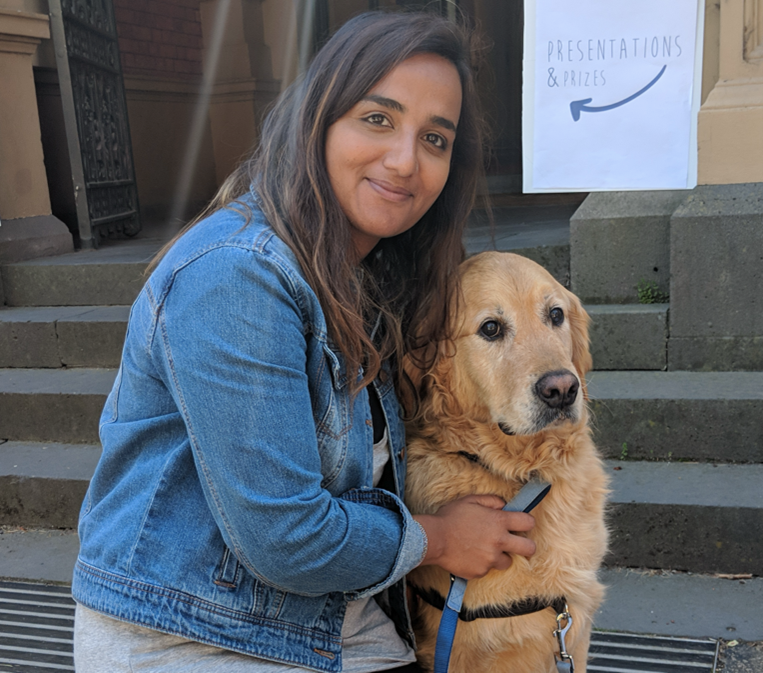
Through my PhD, I am exploring interactions between intrinsic and extrinsic risk factors associated with tail biting in different Australian pork production systems. I have recently completed 23 months of data collection from 79,552 individually tagged pigs by following them from birth to slaughter. My PhD confirmation seminar was well-attended in early February 2024, I am on track to complete this project in 2025.
Recent Publications
Recent publications from APRIL/Pork CRC-supported projects and (or) students are as follows:
- Babington, S., Tilbrook, A.J., Maloney, S.K., Fernandes, J.N., Crowley, T.M., Ding, L., Fox, A.H., Zhang, S., Kho, E.A. and Blache, D. (2024). Finding biomarkers of experience in animals. Journal of Animal Science and Biotechnology 15: 28.
- Dunshea, F.R., Pluske, J.R. and Ponnampalam, E.N. (2024). Dietary iron or inulin supplementation alters iron status, growth performance, intramuscular fat and meat quality in finisher pigs. Meat Science 213, 109496.
- Lucas, M.E., Hemsworth, L.M. and Hemsworth, P.H. (2023). Review: Early life piglet experiences and impacts on immediate and longer-term adaptability. Animal, 100889.
- Pluske, J.R., Murphy, K.J. and Dunshea, F.R. (2024). Pork nutritional value and relationships with human health. In: Dikeman, M. (Ed.), Encyclopedia of Meat Sciences III, vol. 1. Elsevier, pp. 587–595. https://dx.doi.org/10.1016/ B978-0-323-85125-1.00103-4. ISBN: 9780323851251.
- Pluske, J.R., Turpin, D.L., Kim, J.C., Trezona, M., Abraham, S. and Dunshea, F.R. (2023). Impacts of feeding lauric acid on performance of late-finishing, Improvac-treated male pigs. Animal Production Science 63 (18): xii.
- Rikard-Bell, C.V., Taber, N. and Pluske, J.R. (2023). Does the falling-number value impact the adjusted digestible energy content of weather-damaged wheats for pigs? Animal Production Science 63 (18): xiv.
- Taylor, S.M., Navarro, M., Muller, M., Pascal, N., Ibanez, C., Wong, M., Tran, V.H. and Roura., E. (2023). Volatile Organic Compound (VOC) fingerprint in Australian swine feed formulations: Signature groups and nutrient precursors. Animal-Science Proceedings 14: 886-887.
- Tomas, K., Savaglia, J., Plush, K.J., D’Souza, D.N., Butler, K.L., Hemsworth, P.H. and Tilbrook, A.J. (2024). Maternal contact and positive human interactions during lactation impacts piglet performance and behaviour during lactation. Frontiers in Animal Science 4: 1289518. doi: 10.3389/fanim.2023.1289518.
- Ward, S.A., Pluske, J.R., Plush, K.J., Pluske, J.M. and Rikard-Bell, C.V. (2024). Assessing Decision Support Tools for Mitigating Tail Biting in Pork Production: Current Progress and Future Directions. Animals 14: 224. https://doi.org/10.3390/ani14020224.
- Weaver, A.C., Braun, T.C., Braun, J.A., Golder, H.M., Block, E. and Lean, I.J. (2024). Effects of negative dietary cation-anion difference and calcidiol supplementation in transition diets fed to sows on piglet survival, piglet weight, and sow metabolism. Journal of Animal Science 102:skae027. doi: 10.1093/jas/skae027. PMID: 38285624; PMCID: PMC10889728.
A reminder that any dissemination of information in relation to APRIL-funded projects requires prior approval. An approval form can be fund here.
Conferences, Events, Important Dates
- British Society of Animal Science (BSAS)Conference, 9-11 April 2024 (Belfast, Northern Ireland; https://www.bsas.org.uk/conference).
- PIX, AMC and APL ‘Food with Purpose’, 13-15May 2023 (Gold Coast, QLD; https://www.pix.au/).
- 27th International Pig Veterinary Society Congress & 15th European Symposium of Porcine Health Management, 4-7 June 2024 (Leipzig, Germany).
- Joint AAAS & AAAP Conference, 8-12July 2024 (Melbourne Convention Centre; https://www.aaap2024.com/).
- 2024 ASAS-CSAS-WSASAS Annual Meeting, 21-25July 2024 (Calgary, AB, Canada; https://www.asas.org/meetings/annual-2024).
- 75th EAAP Meeting, 1-5September 2024 (Florence, Italy; https://www.isrp2024.org/).
- 2024 Pig Veterinarians Conference, 4-6September 2024; Wollongong, NSW.
- 16th International Symposium on Digestive Physiology of Pigs, 20-23 May 2025 (Lake Geneva, WI, USA; https://www.dppigs.org/2025-Meeting).
